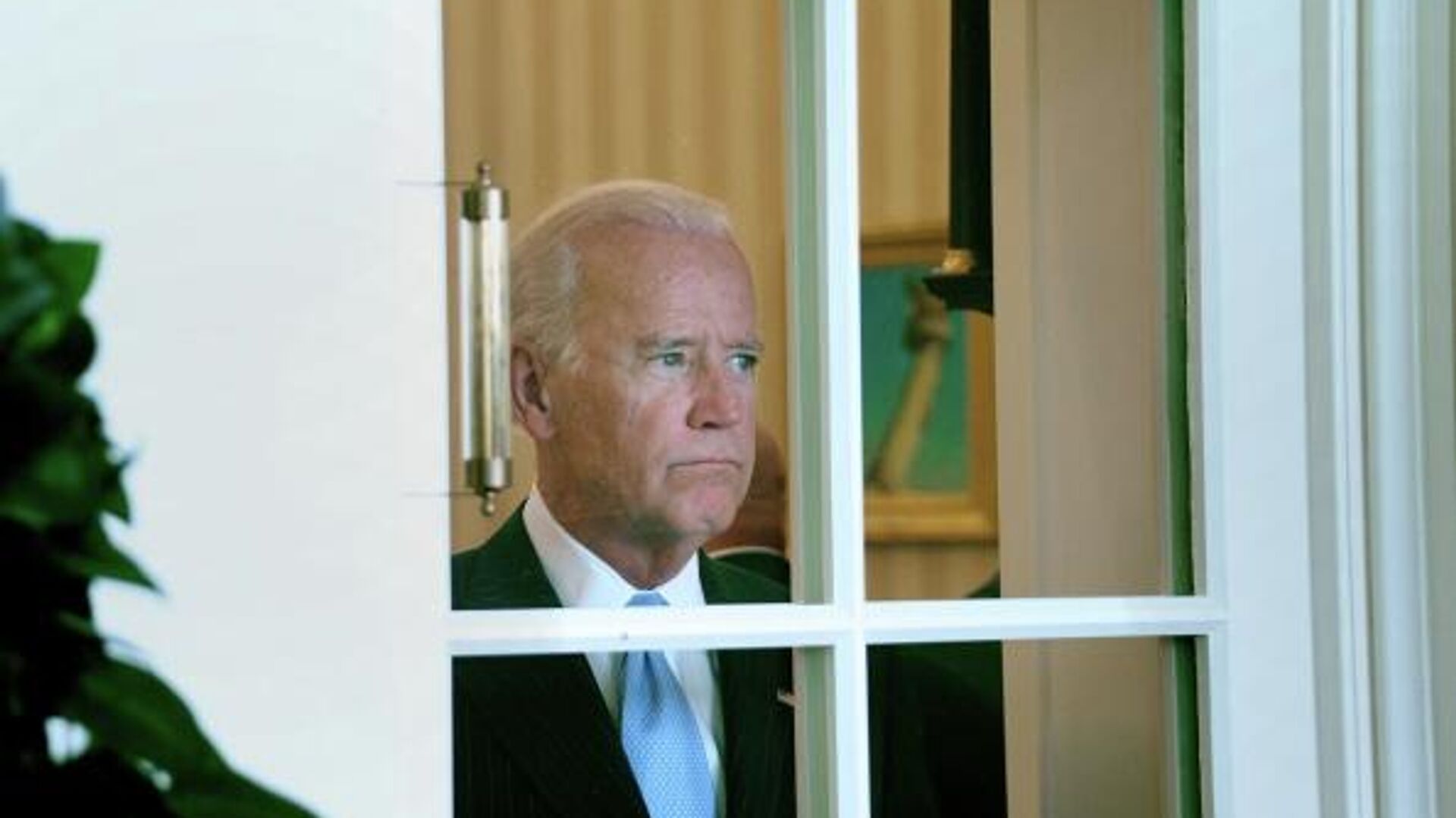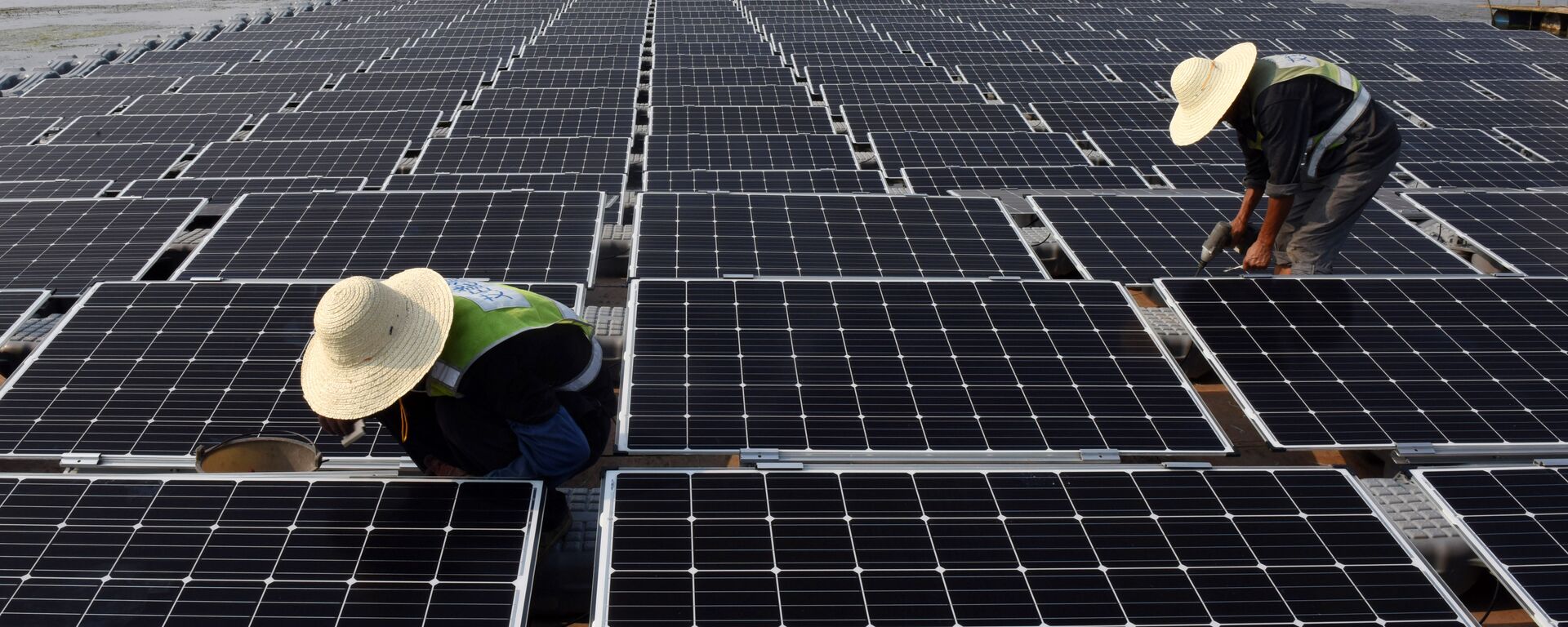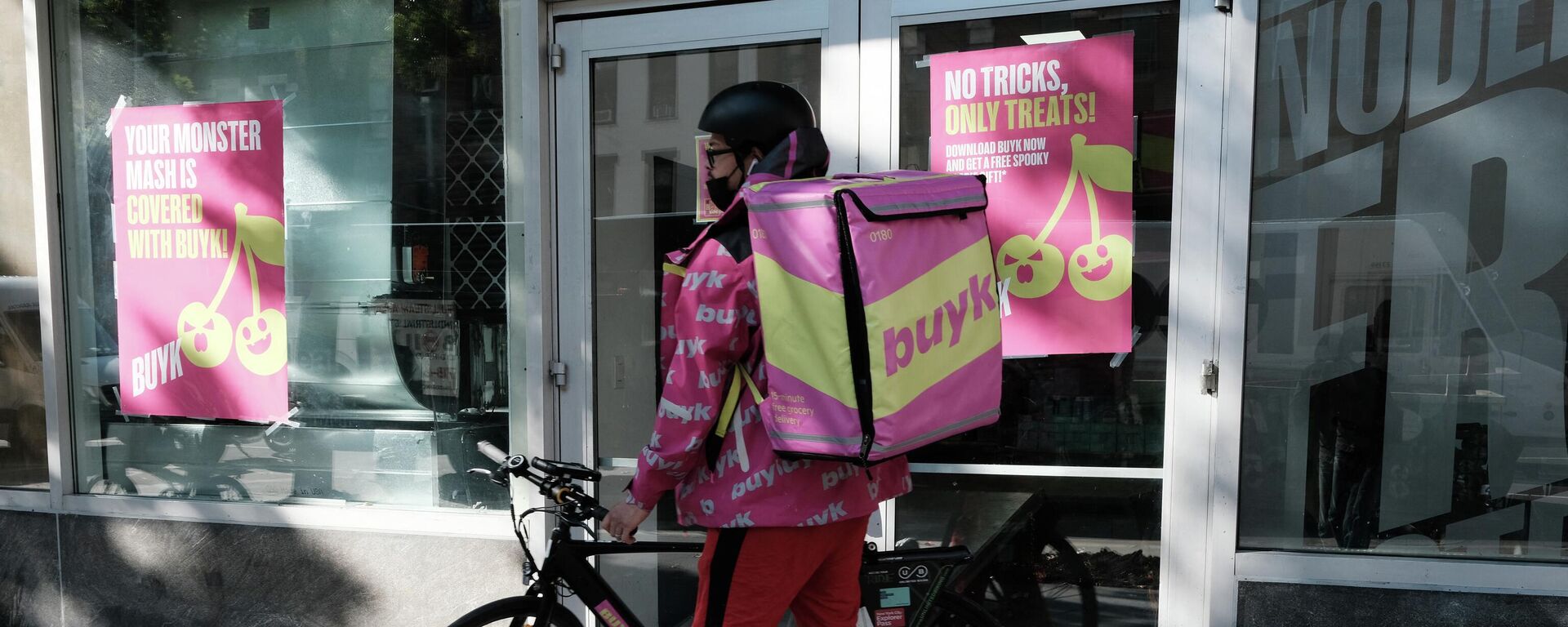Scholar: Biden's Plan to Lift China Tariffs Shows US Can't Take on Beijing and Moscow at Once

© Photo : Knowyourmeme.com
Subscribe
US President Joe Biden is considering lifting tariffs on a range of Chinese goods to slow inflation. Dmitry Suslov, deputy director of the Center for Comprehensive European and International Studies (CCEIS), sits down with Sputnik to discuss the potential consequences of this policy shift.
"I believe that this is dictated by the internal [US] agenda," explained Dmitry Suslov, deputy director of the Center for Comprehensive European and International Studies (CCEIS). "This is a sort of an act of desperation on the part of the Biden administration, which is associated with the need to somehow reduce inflation and reduce consumer prices in the United States, especially in the run-up to the midterm congressional elections."
US President Joe Biden reportedly began considering lifting the $350 billion of tariffs that his predecessor Donald Trump imposed on Chinese goods in early June 2022 in order to tame inflation.
Secretary of Commerce Gina Raimondo told CNN on 5 June that the US president asked her to analyze the matter, adding that while the administration was inclined to maintain tariffs on steel and aluminum, it “may make sense” to lift trade restrictions on products like household goods and bicycles.
The US president has good reason to feel anxious about soaring inflation, which has reached a 40-year high, according to Suslov. The scholar drew attention to the fact surveys indicate that inflation has become the greatest concern among US voters.
"[High inflation rates] are very painful for the Democrats' electorate, because, first of all, high inflation hits the low-income and the middle class," he said. "Low-income and middle class [voters] are the main basis of the Democratic Party and Joe Biden in particular. Joe Biden ran in the [2020] elections promising to pursue policies in the interests of the middle class (…) and now it all seems to have the opposite effect. This poses a colossal threat to the Democratic Party ahead of the midterm elections."
Biden's plans to lift tariffs on some Chinese goods have prompted a heated debate within the US administration, it seems, with some aides arguing that China has not lived up to pledges it made to Trump, including purchase commitments and halting "unfair trade" practices, according to CNN.
The Biden administration is likely to end up making unilateral concessions to China, while there are zero guarantees that Beijing would grant any reciprocal steps, according to the Russian scholar. Suslov noted that this will be interpreted by many as a sign of weakness by the US.
According to the academic, Biden's move may bring serious geopolitical consequences. It will not, however, mean the end of the White House’s strategy aimed at containing China, including Washington's cooperation with Taiwan; beefing up a US military presence in the Asia Pacific; strengthening the Quad bloc; and stepping up collaboration with Australia and the UK within the AUKUS alliance. He forecasted that the US is also likely to proceed with its policy of nixing China's access to western technology and disrupting Beijing's development in the hi-tech sphere.
Nevertheless, the US administration's tariff decision sends a clear message that Washington is incapable of maintaining confrontation with China on multiple fronts.
Anti-Russian Sanctions and Biden's Dilemma
The US' containment policy against Beijing has coincided with Washington's attempts to crackdown on Russia through an unprecedented number of sanctions on the country's industries, institutions and individuals, immobilizing a significant share of Russia’s Central Bank reserves and blocking billions in assets. It appears, however, that the US has started to realize that its sanction policy has fallen short of reaching its objectives.
What's more, some Biden officials are reportedly privately expressing concerns that instead of "dissuading the Kremlin as intended," anti-Russia penalties have exacerbated inflation and worsened food insecurity, according to Bloomberg, which calls the policy "self-sanctioning."
"There’s no [public] sign that administration officials feel their sanctions policy was a mistake or that they want to dial back the pressure… But the collateral damage from the sanctions has been wider than expected," the media outlet admits.
In fact, the Biden administration is on the horns of a dilemma, according to Suslov: on the one hand, Washington cannot backpedal on sanctions as it will be perceived as "capitulation"; on the other, maintaining sanctions contributes to further inflation and overall economic deterioration in the United States.
"I think that the United States will indeed be forced to revise the sanctions in the direction of their correction, in the direction of their reduction," Suslov opined. "It is not necessary to lift the sanctions. You can simply make exceptions to the sanctions within the framework of the general sanctions regime. Sanctions are a fairly flexible tool… On some individual, most sensitive issues - energy, food - that is, where the United States is facing difficulties, it is very likely that they will [make exemptions]."
However, a larger-scale correction of the sanctions regime may take place only when the United States clearly realizes that the sanctions’ costs exceed those of Russia and outweigh the relative geopolitical benefits they intended to give Washington, according to the Russian scholar. The Biden administration's rhetoric and moves indicate that it has stretched itself too thin trying to take on Russia and China simultaneously, according to Suslov.
"The [US] cannot wage such a complex comprehensive struggle on two fronts," the scholar concluded.



